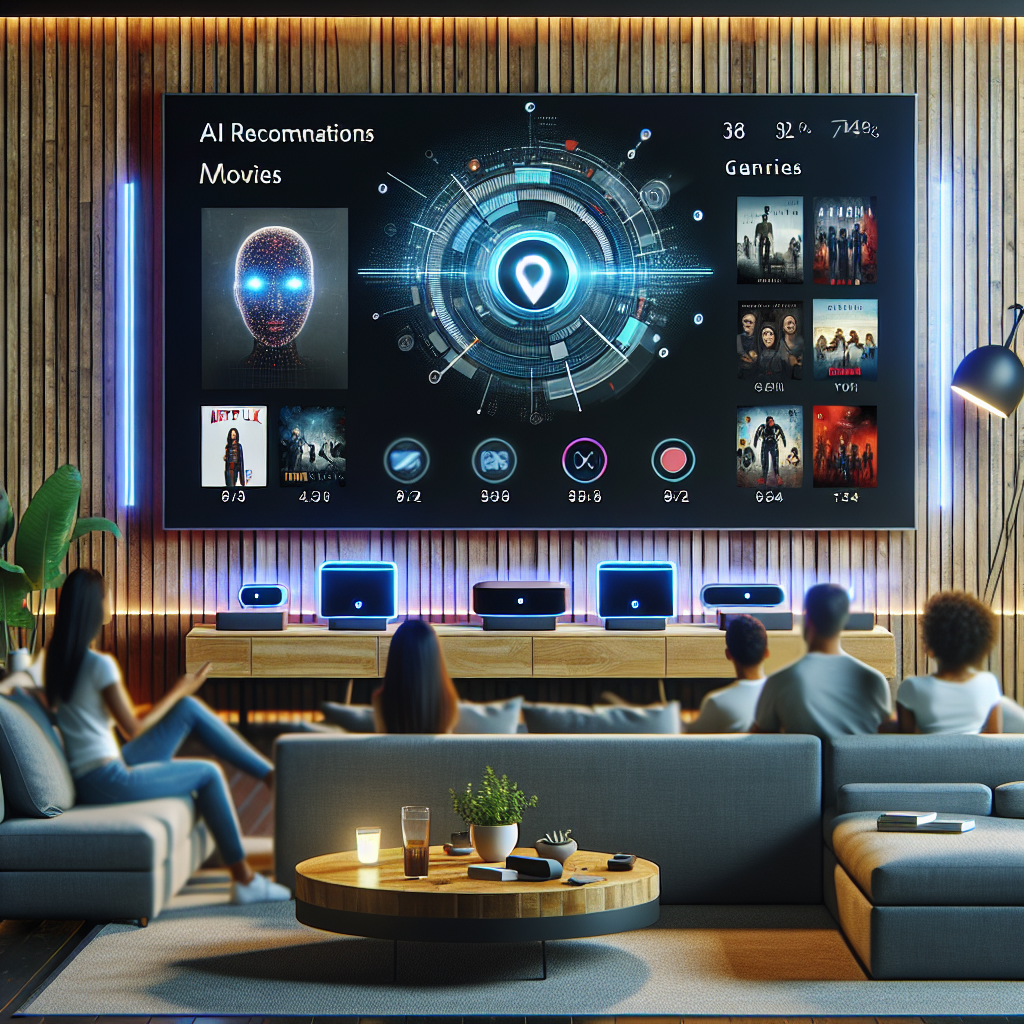The Future of Streaming Devices: AI-Powered Recommendations Take Over
Introduction
The future of streaming devices is poised for a transformative shift with the integration of advanced artificial intelligence (AI) technologies. As streaming platforms become increasingly central to entertainment, AI-powered recommendation systems are set to redefine how viewers discover and engage with content. These sophisticated algorithms not only enhance user experience by personalizing content suggestions but also drive platform engagement and retention by accurately predicting viewer preferences. This evolution marks a significant step towards more intuitive and intelligent media consumption, where technology anticipates user needs and streamlines access to entertainment.
The Future of Streaming Devices: AI-Powered Recommendations Take Over
The future of streaming devices is poised for a transformative shift, largely driven by advancements in artificial intelligence (AI). As we delve deeper into this new era, the integration of AI-powered recommendation systems is set to redefine how viewers consume digital content, ensuring a more personalized and engaging user experience.
Traditionally, streaming devices have relied on basic algorithms to suggest content based on user history and general popularity metrics. However, these systems often fall short in understanding the nuanced preferences of individual users, leading to a one-size-fits-all approach that can miss the mark. The next generation of streaming devices, however, is set to leap beyond this limitation by harnessing the power of AI to analyze a vast array of user data and viewing habits in real time.
AI-powered recommendation engines are designed to learn from each interaction. By continuously analyzing data points such as viewing times, pause and skip behaviors, ratings, and even the type of device used, AI algorithms can discern patterns and preferences unique to each viewer. This deep learning approach enables the system to predict what kind of content a user may enjoy with surprising accuracy, even suggesting shows and movies that a viewer might not have discovered otherwise.
Moreover, the evolution of AI in streaming devices extends beyond mere content suggestion. These systems are beginning to incorporate contextual understanding, which means they can adjust recommendations based on the time of day, the viewer’s mood, or even current events. For instance, on a lazy Sunday afternoon, the AI might suggest a light-hearted comedy or a feel-good movie, while late-night hours might prompt recommendations for thrillers or dramas.
The impact of these AI-driven enhancements is significant, not only for users but also for content creators and advertisers. Content producers gain insights into viewer preferences and behaviors, enabling them to tailor their offerings more effectively. This could lead to a surge in content diversity and quality, as creators respond more dynamically to the tastes and interests of their audience. For advertisers, AI opens up opportunities for more targeted advertising, aligning ads with the content that engages viewers most effectively, thereby increasing the likelihood of ad relevance and viewer engagement.
Furthermore, as AI technology continues to advance, we can anticipate even more sophisticated features in streaming devices. One such potential development is the integration of voice recognition and natural language processing, allowing users to interact with their devices more intuitively. Imagine being able to tell your device not just what genre of movie you want to watch, but also how you’re feeling or what kind of themes you’re interested in, and receiving perfectly tailored recommendations in response.
In conclusion, the future of streaming devices, shaped by AI-powered recommendation systems, promises a revolution in personalized entertainment. These advancements not only enhance viewer satisfaction by delivering a more customized viewing experience but also drive content innovation and advertising precision. As we look ahead, the intersection of AI technology and streaming media holds exciting possibilities for transforming how we discover, enjoy, and interact with digital content. The era of truly intelligent streaming is just around the corner, ready to take viewer engagement to unprecedented levels.
Conclusion
In conclusion, the future of streaming devices is poised to be heavily influenced by AI-powered recommendation systems. These systems will enhance user experience by providing more personalized content suggestions, thereby increasing viewer satisfaction and engagement. As AI technology advances, these recommendation engines will become more sophisticated, capable of understanding user preferences with greater nuance and accuracy. This shift is expected to not only retain current subscribers but also attract new users, ultimately shaping the competitive landscape of the streaming industry. However, this progression also raises concerns about privacy and the potential for echo chambers, which will need to be addressed to ensure a balanced and ethical advancement in streaming technology.



